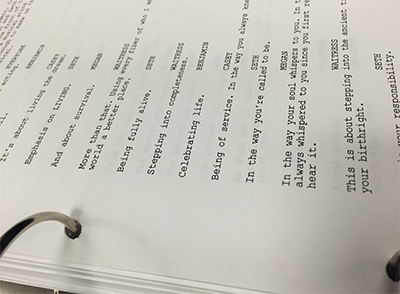Putting words on the page can be hard work. It requires concentration and focus. Once you’ve put the energy and time in, what should you do next? I’ve been talking recently with friends and clients about the other things that are sure to enhance your writing life. Many of us believe (falsely) that writing is the only thing a writer should be doing. But that’s far from the truth. Check out this list and add these things to your routine and see how they impact your process.
Below are six things you can do once you step away from the keyboard (or the pen):
1) Go away. Take a mini-vacation from the work and clear your mind. A walk, a meditation, listening to music or watching TV – any kind of break from the work could allow you to return to the page refreshed, inspired and ready for more.
2) Research. There’s nothing like supplementing your imaginative word play with information that might enhance the narrative. Check out a book, a film or an article that deals with the subject matter you’re engaged in and see if the info creates a new spark.
3) Send your work out. Choose a contest, a festival or a producing organization and send them your work. Search the internet or find other resources and take the time to share your piece with the world (when it’s ready). With or without an agent, it’s excellent practice to make sure your stuff is getting out.
4) Get an opinion. Ask someone you trust to read what you’ve written (when you’re ready). Or get people together to read your work and solicit comments afterwards. Be clear about what kind of feedback you’re looking for. Then, take the notes with a grain of salt. Find your process of deciding which ideas you want to pay the most attention to – then try that.
5) Network. To some of us, this sounds mysterious, but networking is easier than you think. Attend a workshop or lecture about writing, go to a meet-up or professional mixer and mix. Seek out writers who are doing the kind of work you do (or want to do). Be ready to talk about your writing and yourself. When you find like-minded folks, exchange information. When you’re able to, keep in touch. Send interesting articles to your contacts. Drop them an email. Send a holiday card. The more you keep in touch, the more they’ll remember you.
6) Start something new. Whether you’re in a long or short process of creating something, a creative diversion may be just the ticket to keep you engaged and focused. Try your hand at a short play or a short story in between projects or if the main thing you’re writing hits a snag. The more you try, the more practice you get and the braver you become about creating work. Flow from one project to the next and trust the unfolding.
These non-writing things can make your writing a fuller, more satisfying experience. Try something (or everything) from this list. Let me know how it turns out for you. And if you need additional help – you know where to find me.
Happy writing (and non-writing).


